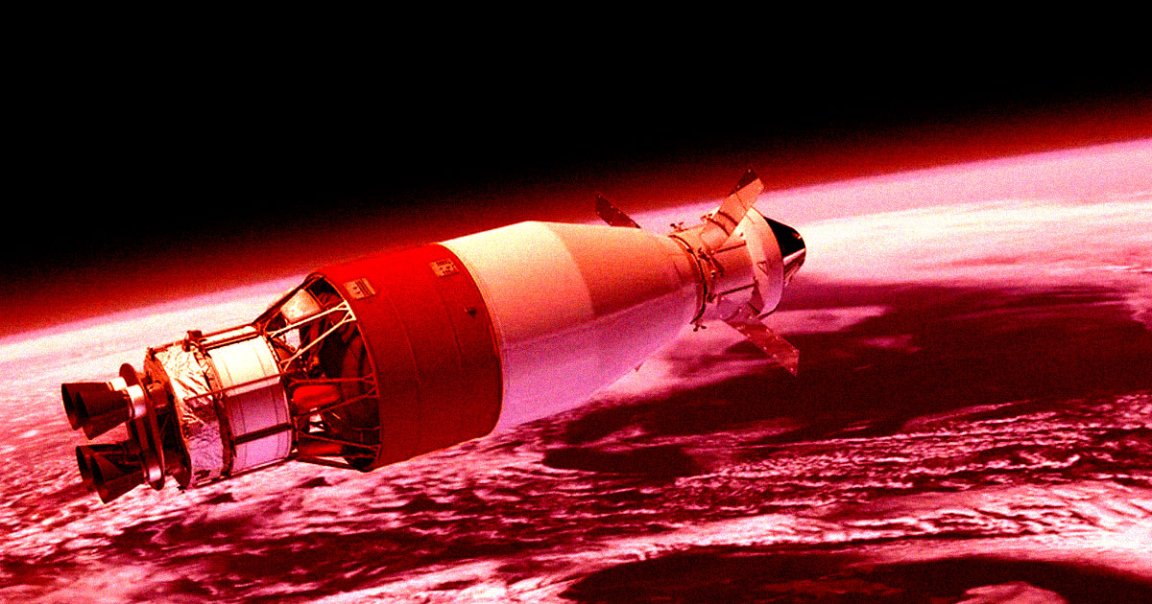
As Boeing’s woes with its plagued Starliner spacecraft continue, the aerospace giant’s contributions to NASA’s efforts to return astronauts to the Moon are also significantly behind schedule and way over budget.
Boeing was contracted to develop a powerful new upper stage for NASA’s Space Launch System, the gigantic rocket the agency is using to get to the Moon. The configuration, known as Block 1B, is meant to make its debut during NASA’s Artemis IV mission, the second planned lunar landing, which is tentatively scheduled for 2028.
But according to a damning new report by NASA’s inspector general, the rocket stage could end up being one of the many reasons why the agency may end up delaying the mission.
“We found an array of issues that could hinder SLS Block 1B’s readiness for Artemis IV including Boeing’s inadequate quality management system, escalating costs and schedules, and inadequate visibility into the Block 1B’s projected costs,” the report reads.
Considering the embattled contractor is still reeling from its leaking spacecraft stranding two NASA astronauts on board the International Space Station — not to mention years of controversies surrounding its passenger jet business — the report is far from confidence-inducing, and highlights systemic issues affecting the company’s operations.
Particularly eyebrow-raising are a number of “Corrective Action Requests,” which are changes the Defense Contract Management Agency (DCMA) — a federal body that administers contracts for the Pentagon — demands when “deficiencies in quality” are found. According to the inspector general’s report, the DCMA issued Boeing 71 requests, as well as one particularly serious, higher-level request.
“According to DCMA officials, this is a high number of CARs for a space flight system at this stage in development and reflects a recurring and degraded state of product quality control,” the report reads. “Boeing’s process to address deficiencies to date has been ineffective, and the company has generally been nonresponsive in taking corrective actions when the same quality control issues reoccur.”
These quality control issues plaguing Boeing’s operations at its Michoud Assembly Facility in New Orleans specifically are “largely due to the lack of a sufficient number of trained and experienced aerospace workers at Boeing,” the inspector general found.
Boeing’s training and work efforts to rectify the situation were “inadequate,” resulting in deficiencies such as “welds that did not meet NASA specifications.”
“The lack of a trained and qualified workforce increases the risk that Boeing will continue to manufacture parts and components that do not adhere to NASA requirements and industry standards,” the report reads.
The upper stage — which was originally meant to be delivered to NASA in 2021 and has since been delayed to April 2027 — is also $700 million over budget, and could end up delaying the Artemis IV launch date.
If any of this sounds familiar at this point, you’d not be alone. Boeing has already come repeatedly under fire for shoddy workmanship when it comes to the construction of its passenger planes, culminating in a “door plug” that blew out of an Alaska Airlines Boeing 737 jet earlier this year.
Since then, regulators have been poring over the data, finding evidence of everything from overwritten security footage to a lack of repair records.
Several whistleblowers have since come forward, alleging that the company’s work culture resulted in rushed labor, low safety standards, and frequent disconnects between the manufacturer and its suppliers.
Earlier this week, National Transportation Safety Board officials laid into Boeing and its supplier Spirit AeroSystems during a hearing, accusing them of bringing in untrained workers, resulting in chaos on the factory floor.
And given the latest report by NASA’s inspector general, these kinds of issues extend far beyond Boeing’s passenger jet business, plaguing the agency’s ambitious plans to return astronauts to the Moon.
Worse yet, as Ars Technica points out, NASA’s Space Launch System has long proven to be an extremely expensive option to launch its Orion spacecraft to the Moon. While SpaceX has yet to launch a crew on its Starship spacecraft, the company is making considerable progress. Even Jeff Bezos’ Blue Origin is creeping towards a test launch of its massive New Glenn rocket.
More on SLS: NASA Rocket for First Crewed Moon Mission Since Apollo Arrives at Launch Site